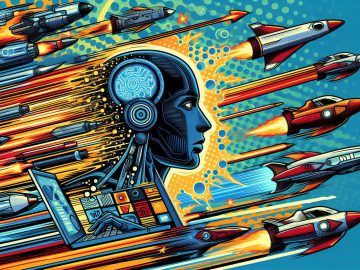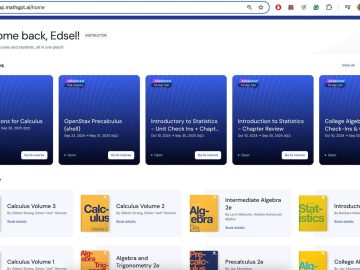Artificial Intelligence (AI) has quickly become a transformative force, disrupting industries and fundamentally changing how we live and work. Yet, only some truly grasp the depth of expertise and innovation that drives this field and its potential to reshape our future.
What challenges does AI face today? How are emerging technologies, business integration, and ethics influencing its trajectory?
To explore these questions, we sat down with Suprit Kumar Pattanayak, an AI thought leader whose journey from commerce to AI leadership offers valuable insights into the evolving technological landscape and its potential for social good.
Suprit is a renowned figure in AI and technology, and he is celebrated for his impactful contributions and innovative work in the BFS sector. His journey is remarkable, starting from a background in commerce and moving into AI leadership.
© Suprit Kumar Pattanayak, Associate Partner/Managing Consultant – BFS
How did your educational choices shape your career?
Suprit Kumar Pattanayak (SKP): Thank you for having me. My journey into AI was built on a strong foundation in both business and technology. I started with a degree in commerce, which gave me a solid grasp of business principles, which remain constant despite the changing times. Recognising the increasing role of technology in transforming industries, I pursued a Master’s in Computer Applications to enhance my technical skills.
Later, I earned an MBA to sharpen my leadership and strategic thinking. This combination of business and technical knowledge has equipped me to approach challenges from both perspectives, which is especially valuable in sectors like Banking, Financial Services, and Insurance, where business and technology converge.
You’ve held significant roles at leading tech consulting companies. Can you share some key highlights from your professional journey and how these experiences have contributed to your growth?
SKP: Absolutely. My career began at Mphasis as a Business Analyst, where I first learned to develop impactful solutions, especially for startups. Moving to Cognizant, I became deeply involved in mergers and acquisitions, managing due diligence and creating key metrics to evaluate integration success.
This experience helped me appreciate the value of thorough planning and flawless execution. At Wipro, I now lead program operations and oversee product governance, always striving to incorporate the latest industry best practices. These roles have reinforced my commitment to delivering results and helped me evolve as a leader focused on excellence and innovation.
The AI community has been abuzz about your new book “AI & Gen AI: Bridging Tech and Business.” What inspired you to write it?
SKP: I recognised AI’s vast potential to transform industries and saw a significant gap in how business leaders understood and applied AI to solve real-world challenges, particularly in traditional sectors. This realisation motivated me to write “AI & Gen AI: Bridging Tech and Business“, a practical guide aimed at helping professionals break down the complexities of AI so that they can effectively use it within their organisations.
I’ve already published numerous scholarly articles on topics such as Transforming Business Consulting through Generative AI: A Framework for Enhanced Strategic Decision-Making and Value Creation in 2019, and readers have been requesting that I write a comprehensive guide around AI in business. My work, including a patent, is focused on making advanced AI concepts accessible and actionable, empowering enterprises to integrate these technologies and stay competitive in a rapidly evolving digital landscape.
Ethics in AI are a growing concern. How do you approach the ethical challenges that arise when integrating AI in business?
SKP: Ethics are at the heart of how I approach AI development and deployment. A simple analogy I often use is how some students may cheat on exams to secure high grades without doing the necessary work. In business, AI adoption brings up moral dilemmas such as algorithmic bias, data privacy, and transparency.
In one of my papers, I explored how these challenges can be navigated in business consulting. Ensuring that AI systems are fair, transparent, and trustworthy is crucial. I advocate for responsible AI practices, stressing that innovation should align with ethical standards and enhance human well-being without compromising core values.
You’ve also been involved in integrating AI into DevOps pipelines. Can you expand on this and discuss its impact on software development?
SKP: Definitely. Integrating AI into DevOps processes can significantly boost efficiency and software quality. By automating repetitive tasks, AI frees up teams to focus more on innovation while maintaining the integrity of their code. In collaboration with other experts in the field, I co-authored a paper outlining a framework for AI integration in DevOps.
This approach emphasises continuous integration and delivery, enabling organisations to be more agile and responsive to market demands, ultimately accelerating development cycles without compromising quality.
What is your vision for AI’s role in society, particularly in bridging socioeconomic gaps?
SKP: AI is a powerful tool that democratises access to essential services like education, healthcare, and financial services.
By developing AI solutions tailored to the needs of underserved communities, we can create new opportunities for economic and social mobility. AI can potentially empower individuals and communities, helping bridge socioeconomic divides and enable more inclusive progress.
Lastly, what advice would you give aspiring AI and technology professionals?
SKP: My advice is to cultivate a strong understanding of the industry’s technical and business aspects. Stay curious, embrace lifelong learning, and keep pace with rapid technological advancements. Also, always consider the ethical implications of your work and strive to create solutions that are not only innovative but also responsible. Staying adaptable and committed to learning will be key to success in this fast-evolving field.




